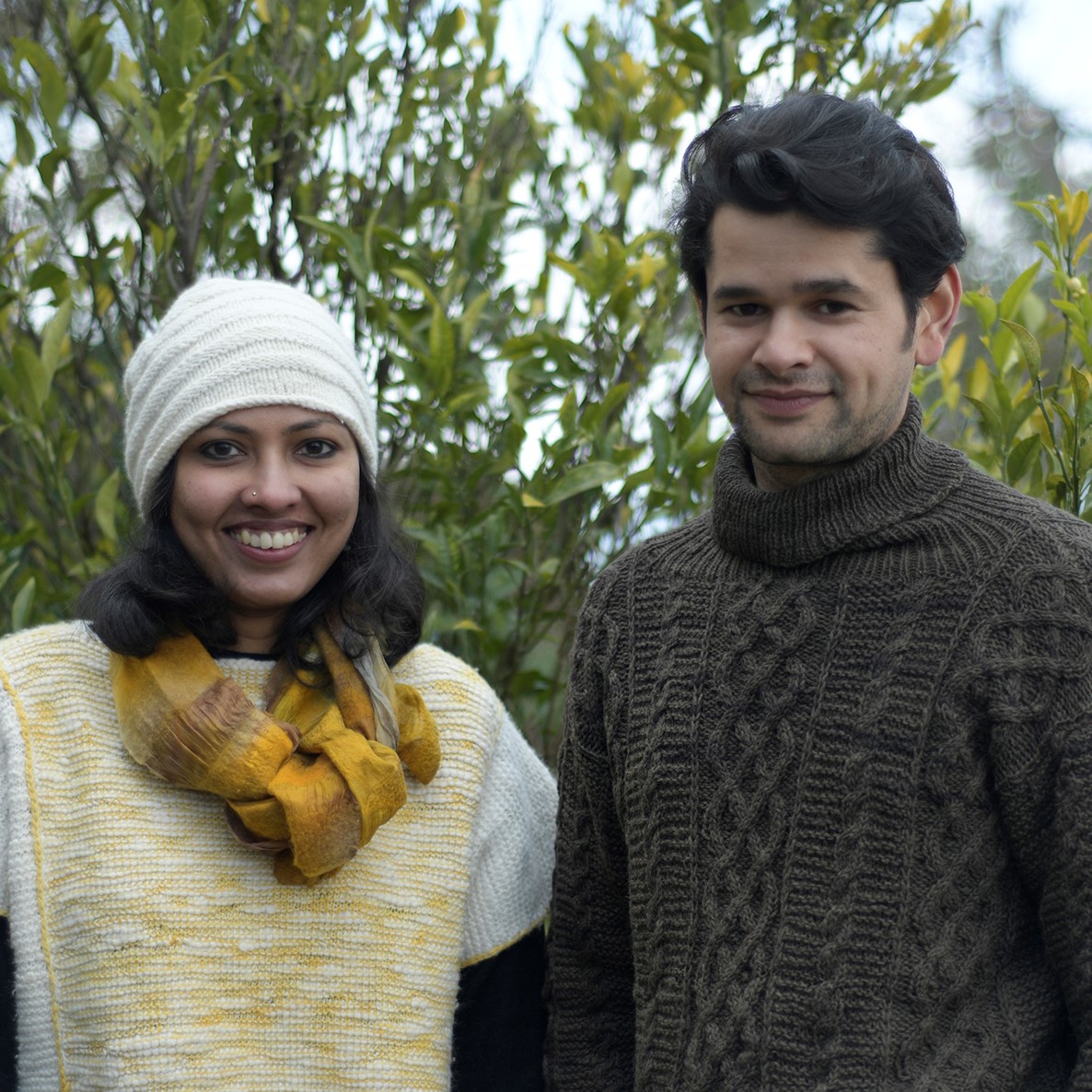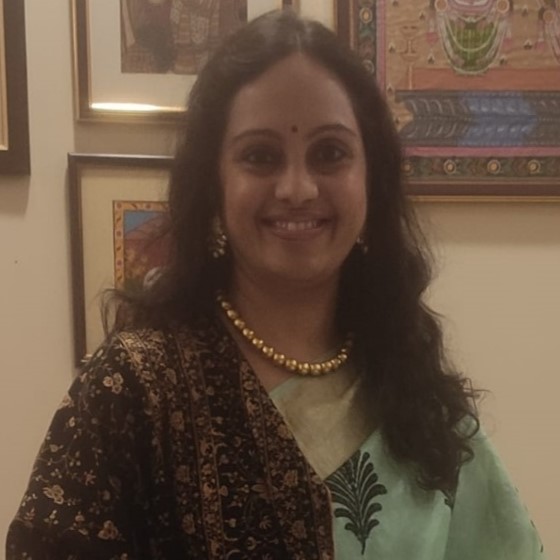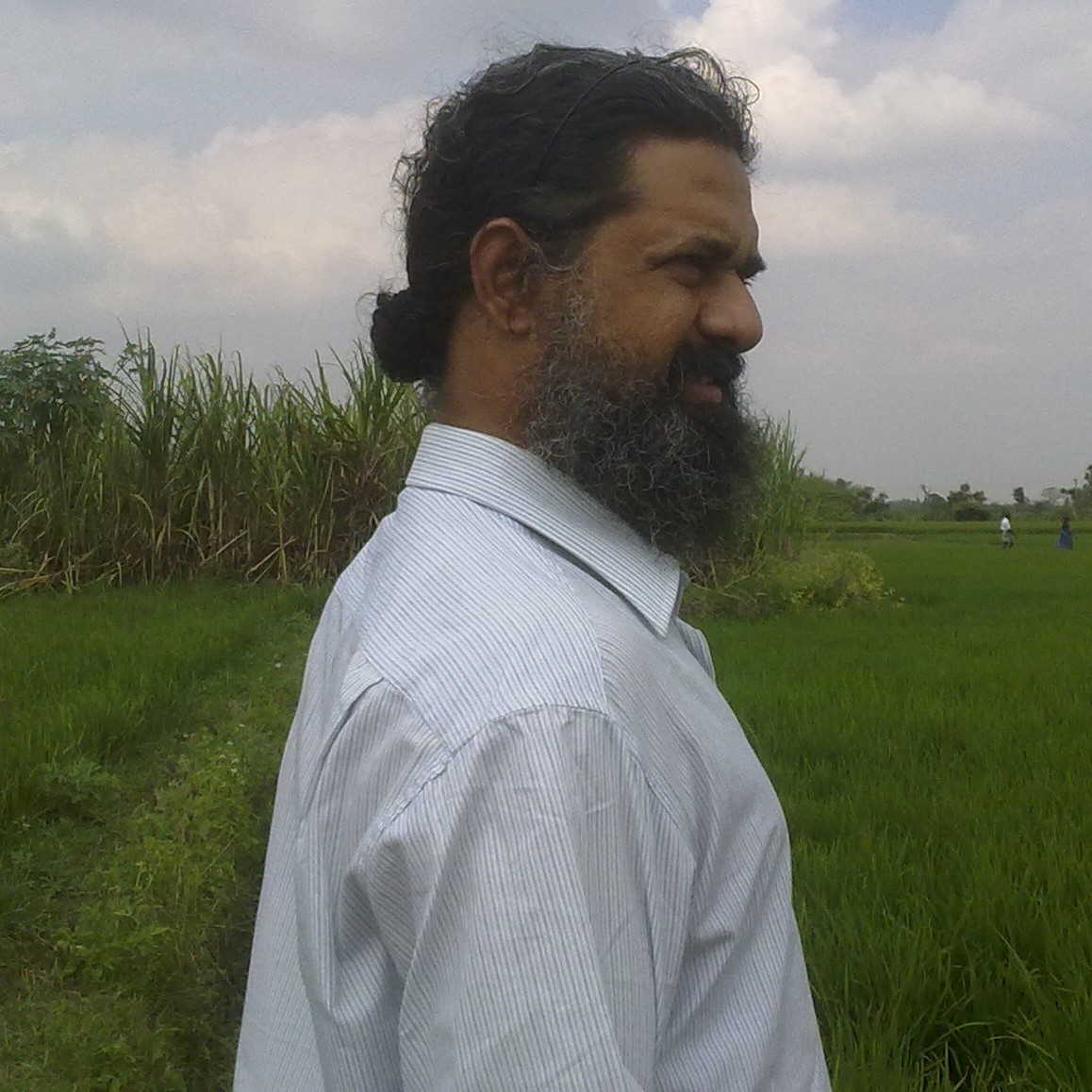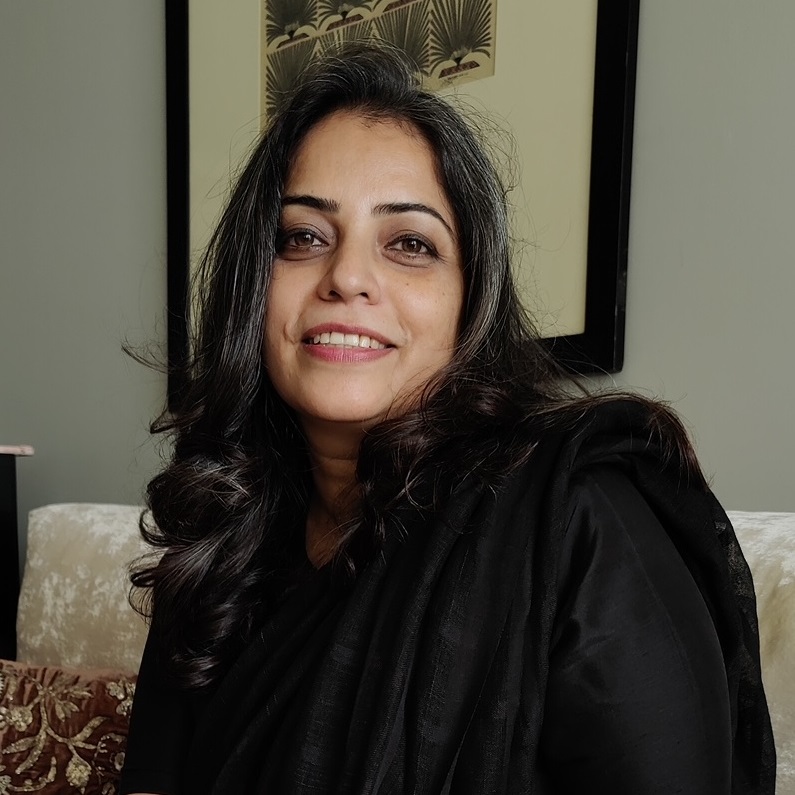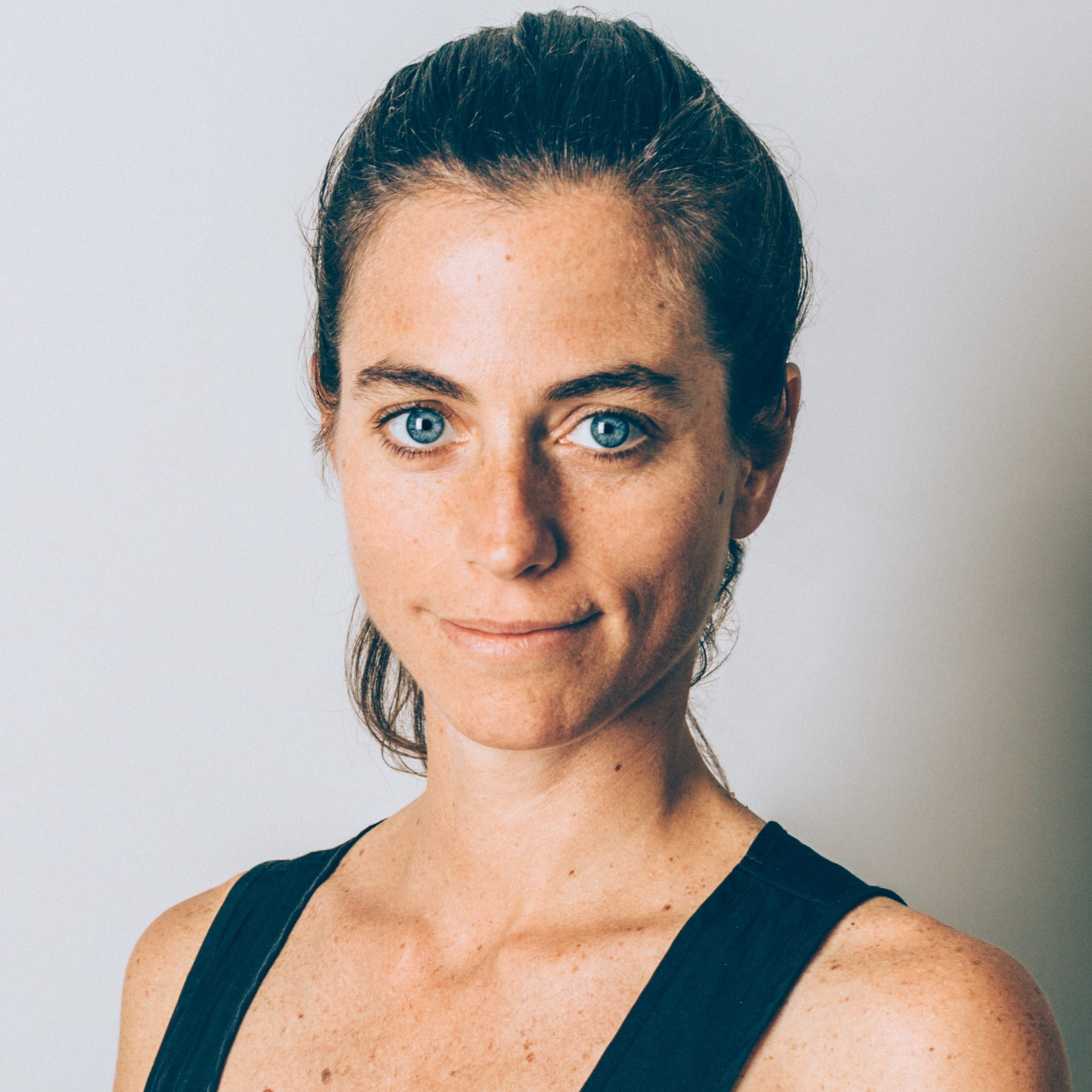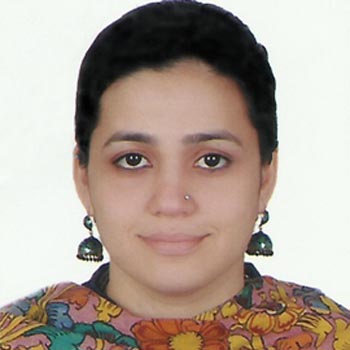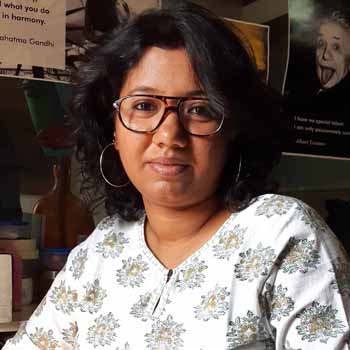JOURNAL ARCHIVE
Abhinav Dhoundiyal and Vasanthi Veluri, both design graduates of National Institute of Design have each explored their own ideas about exploring textiles and craft as a means of generating livelihoods for artisans across India. While at NID, they worked on the North-East Textile Documentation Project in Nagaland for almost a year when they were carefully documenting the weaving, natural-dyeing, bead jewelry making and language of a few tribes of Central and Easter Nagaland. This intensive study helped encourage them to understand the potential of indigenous skills and natural resources of Abhinav’s homes state Uttarakhand. They co-founded Peoli in 2015, to pursue this shared interest. Engaged in research, archival and innovation in the local crafts of spinning, dyeing and hand knitting in Almora, at Peoli the focus is on developing sustainable production practices and creating livelihoods for women artisans. With a growing international market, Peoli has been awarded the Word Craft Council Award for Excellence in Handicraft (2018), the Lexus Design Award for Textile Design (2020); the Sambhaava award for Women’s Empowerment (2019) by FICCI FLO and more recently and AIACA’s Best Green enterprise award in 2021 and India’s Best Design Award in Oct 2022.
Megha Agarawal, is a designer turned social-entrepreneur, founder of the organization – ‘Crafting Nuru’. She has a Fine Art background and did her Masters in Design - Visual Communication from IDC IIT Bombay. Her comfortable corporate career was short lived soon after she founded Crafting Nuru with the support of IIM Ahmedabad and started working with the institute as Research Associate on Craft research projects. Crafting Nuru (www.craftingnuru.com) presently provides craft-design-education consultancy to NGOs and other craft based organizations; as well as is involved in production of handicraft products in Rajasthan. The organization aims to start a chain reaction with Craft-education being instrumental in over-all development of craft-sector and in turn, sustainable development of India. Their ‘design curriculum for artisans’ had been implemented in five artisan-schools in Bikaner by Rangsutra and the schools’ success validates the vision set by Crafting Nuru. Apart from being a designer, she is an artist proficient in Hindustani classical music, had worked as radio jockey, has keen interest in documentary film making and writing.
Richika Agarwalla is a Chartered Accountant by qualification and a social entrepreneur by passion. She is the co-founder of Asama Enterprise LLP, based in Alimur village in Assam, India.
Dr. Reena Aggarwal is an Assistant Professor in National Institute of Fashion Technology, Mumbai. A master’s in textiles and clothing from Vanasthali University, She has done her doctorate in assessing the felting ability of different types of indigenous and exotic wool fibres from Vanasthali University in collaboration with Central sheep wool research Institute (CSWRI) Avikanagar. She has taught in Banasthali University, Delhi University and has a teaching experience of more than a decade. She writes for various journals and also presented papers at conferences. In addition to her interests in Traditional Indian Textiles and surface design techniques, she has worked extensively with natural dyes.
Sustainability has profoundly inspired Radhesh during his journey in the handicraft field. Witnessing people's pursuit of sustainable products without fully understanding their true nature has motivated him to create innovative solutions for a better, greener, and more sustainable future. In 2006, Radhesh’s design journey began in the National Institute of Fashion Technology (NIFT), Mohali in his undergraduate degree. After completing his studies in textile designing, he joined Balaji Overseas as a textile designer. However, his thirst for knowledge led him to pursue further studies, so a year later, he enrolled in the Indian Institute of Crafts and Design (IICD) in Jaipur for his postgraduate studies. During his time at IICD, he worked on a project that involved transforming waste into utility products. This sparked his interest, and for the next eight years, he dedicated his research to the field of textiles. After graduating from IICD as a Textile Designer, he joined Trifed, a government organization focused on promoting tribal crafts in India. In his role, he provided craft training to 2,000 tribal women and later became a Member and Head of the purchase committee within the organization. While at Trifed, he continued his research, and it was during this time that he invented the world's sixth natural woollen fibre by up cycling Chicken Butchery Waste. In 2019, he registered his own company named Mudita and Radhesh Private Limited. To combat the BC Waste and environmental impact, his company, Mudita & Radhesh Pvt. Ltd., a social entrepreneurial venture, has introduced the innovative sixth natural woollen fibre by upcycling butchery chicken waste. This innovative fibre is ten times warmer, softer, and more durable than other existing natural and manmade fibres. To address this issue, the organization focuses on the collection of BCW from local slaughterhouses and chicken markets. We have developed a patent-protected, eco-friendly process to sanitize this waste effectively. The organization collects this waste and employs various methods to convert it into valuable products, such as pulp, yarn, fabric, paper, bio-diesel, fertilizer, and even blood balls. Within the 350 grams of Butchery Chicken Waste, we utilize 50 grams for feathers, 70 grams for inner cells, 50 grams for blood, and 180 grams for skin and fat, ensuring a zero-waste approach to the utilization of chicken waste. His work and dedication to sustainable design have been recognized and awarded over the years. GERMAN DESIGN AWARD [Gold] for Golden Feathers (GDA 2021-32386) in the Category Excellent Product Design - Lifestyle & Fashion (2020- 2021). 10th AEGIS GRAHAM BELL AWARD for innovation in clean tech (2020). 9th CII DESIGN EXCELLENCE AWARD [Design for Social Impact & Sustainability] 2019. 9th CII DESIGN EXCELLENCE AWARD for the overall Category of Industrial Design (2019). IICD KRIPAL SINGH SHEKHAWAT AWARD (2021). FUTURE DESIGN AWARD 2021 [lifestyle Category]. SWACHHATA STARTUP CHALLENGE [2022]. 10th NATIONAL CONFERENCE ON SOCIAL INNOVATION [Tribal Category]. LEXUS DESIGN AWARD 2023 [Jury's Special Mention]. ‘RADHESH AGRAHARI’: Being environmentally conscious has always been an integral part of who I am. My vision revolves around bringing about a life transformation and generating livelihood opportunities for tribal women in underprivileged areas through sustainable development, all while working towards creating a pollution-free environment. Looking ahead, my ultimate goal is to establish a craft village for tribal artisans where they can utilize their traditional craft skills in spinning, weaving, and dyeing. A craft village for all of us, where one can learn, explore, enjoy, buy, live and what not. I also aim to provide training in these crafts to the next generation, ensuring a sustainable and eco-friendly future.
Aid To Artisans (ATA), a USA based non-profit organization offers practical assistance to artisan groups worldwide, working in partnerships to foster economic development, improved livelihoods, cultural vitality and community well-being. Through collaboration in product development, business skills training and linkages to new markets, ATA provides sustainable economic and social benefits for craftspeople in an environmentally sensitive and culturally respectful manner. ATA's uniqueness lies in its multi-faceted and holistic approach to artisan enterprise development, which is designed to provide sustainable economic and social benefits to artisans and their communities. ATA works with artisans across the globe and currently has 20 projects across four continents. ATA benefits 20-25,000 artisans per year through projects and grants (with 2/3 being women), and in FY07 leveraged more than $15 million in new sales for artisan businesses.
Ananthoo is the mentor and co-founder of India Hand-Made Collective and Tula Organic Clothing. Trained as a Telecom Engineer he worked in the Telecom and IT sector till 2006 when he returned from Switzerland back to India. No longer working on any monetarily gainful employment he works only on social causes, predominantly on safe food, slow clothing and sustainable agriculture. Along with a few friends he works with small and marginal farmers helping them move to sustainable farming. to help sell their organic produce they started a volunteer run non-profit organic retail outlet in Chennai called- Restore (www.restore.org.in) An extension of this is the not-for-profit, hub & spoke model, which takes accessible safe organic food to more places, especially to the middle and low income groupsis OFM- Organic Farmers Market (http://www.ofmtn.in/). Ananthoo is also associated with the Alliance for Sustainable and Holistic Agriculture- ASHA, a national network of farmers organisations, unions, NGOs, activists and individuals working on sustainable agriculture and farmer’s livelihoods. (www.kisanswaraj.in) He works with cotton farmers to help them grow cotton organically, procure it, hand spin, hand weave, natural dye, manually stitch and then sell the garments, ploughing the margins back into these livelihoods.(www.tula.org.in) and (facebook.com/tulaIndia) An extension of this being a collective of various groups across India working with handmade artisans called India HandMade Collective (www.indiahandmadecollective.com) He writes on farmers issues, world trade impacts on Indian agriculture, safe food and other ecological issues in Tamil Hindu, Dinamalar, Vikatan.
Born in the small town of Karnal, Haryana in an academic household Anavila was moulded for excellence. With an honours degree in Management, a post-graduation from NIFT (1998- 2000) and over two decades of work experience in the industry. The brand journey began in 2011 when Anavila after her short stint abroad came back to India. After considerable thought and perseverance with various clusters and artisans the first linen sari was created, hence disrupting the sari design and creating a completely modern, comfortable and desirable to wear sari. We have been constantly evolving over the last decade, while firmly holding on to our core values of creating comfort through innovation and design working closely with artisanal cluster
The brand remains firmly grounded to its heritage using indigenous textile, technique and crafts to design collections that reflect our evolved culture. Her work strongly communicates revival of handcrafts and sustainability of fashion’s auxiliary industries.
Anavila has built her brand from one weaver on one loom to a business model supporting over two-hundred weavers and craftsmen.
Anavila has been awarded the Vogue India Fashion Fund’s Sari Award (2016), FICCI FLO for innovative design (2016), Femina Women Jury Award for Arts and Design (2017) and the Condé Nast Traveller and Forest Essentials Excellence Award (2018). She is also on Grazia's 100 Most Influential people in fashion of 2017. Along with these prestigious recognitions, Anavila is humbled to have been a part of the NIFT Board of Governors and hopes to constantly inspire the young talent of today.
A Anupama is currently pursuing PGDM-Apparel management,from Sardar Vallabhbhai Patel International School of Textile and Management, Coimbatore(under indian textile ministry). Her passion is to work for the development of traditional indian textiles,crafts and handlooms. She recently completed a project on AYURVEDIC HEALING FABRIC at Handloom weavers development society,Balaramapuram.
Francisca Apparcel has travelled a very interesting path, in which she has been able to draw inspiration from the cultures of countries that are very different from each other. She was born in the small city of Osorno, right where Chilean Patagonia begins, and grew up surrounded by the countryside, nature, and crafts. Later she studied Commercial Engineering in Santiago de Chile, and her interest in textiles led her to undertake an independent fashion project with pima cotton in Peru and then in Chile, Chilote Shoes, where she embodies her greatest vision and intention by collaborating with artisans, their crafts and lifestyle. She now lives in Höllviken, in southern Sweden, with her two children and her husband Stiven Kerestegian, with whom she co-founded Chilote Shoes. Francisca is rooted in the social and cultural context of Patagonia and in the business model concepts that promote an ethical economy. With the union of her experience and training, she co-founded and co-created Chilote Shoes with her husband, a project that today employs many artisan women from rural areas of southern Chile.
Radhika Arora is an English graduate from Delhi University. She is a freelance writer and journalist.
Assistant Professor (Guru Gobind Singh College for Women, Punjab University, Chandigarh) Empanelled Designer (Textiles and Clothing, with the Office of the Development Commissioner, Handicrafts, October 2013 and December 2016) Rohini Arora is working as academic and design consultant with reputed institutions. She is in the field of teaching, research and development, since early 2005. She has done Masters in Home Science in Textiles and Clothing from Lady Irwin College, Delhi University. She was awarded ‘Best Student Award’ in Textile Design in M.Sc. Textile & Clothing. She has qualified U.G.C NET in December 2005. Ph.D degree was awarded in Fabric and Apparel Science, Department of Home science, Lady Irwin College, Delhi University in May 2015 on thesis title ‘Capacity Building of Artisans for the Sustenance of Traditional Chamba Embroidery’. She was empanelled as designer in Textiles and Clothing with the Office of the Development Commissioner (Handicrafts) in October 2013 and December 2016. She has seven years of teaching experience in premium colleges in Delhi and Chandigarh namely Lady Irwin College, Mata Sundri College for Women, Government College of Home Science and NIIFT. Numerous research papers were presented in International and National conferences. Several research papers and proceedings were published in journals and books. She has eleven years of experience in field of craft. Several workshops and exhibitions were coordinated with the artisans to upgrade the existing skills of the artisans. In recent times, she was invited by Dr. Kapila Vatsyayan, Chairperson, International Research Division and Life Trustee, India International Center to display the exhibition of embroidered products from Chamba from 17 February’ 2018 to 26 February’ 2018. The exhibition was inaugurated by Development Commissioner (Handicrafts) Shri Shantmanu, IAS, Ministry of Textiles, Government of India. The exhibition was visited by eminent scholars, well covered by several newspapers and also featured on Rajya Sabha TV. The exhibition was supplemented with demonstrations, workshops by artisans from Chamba and symposium for disseminating information on sustaining the rich cultural heritage of Indian textiles. Lately, she has placed proposal under cultural exchange programme by ICCR for display of exquisite embroidered products from Chamba in major events worldwide which has been accepted. The date and host country is yet to be announced.
Vinoth Kumar Azhagesan completed his Bachelor’s (Apparel and Fashion Technology) from Namakal (District), Tamil Nadu. Currently, he is pursuing Post Graduation, Master of Design (Final Year) from National Institute of Fashion Technology (NIFT) Mumbai, India. He is doing a project on Kodali Karrupur saris.
Aarti Badamikar works at a juncture of design, craft and art. Her practice spans the areas of textile design, craft revival and making of art. She is a Textile Design graduate from Sir J.J. School of Art, Mumbai (2006) and has pursued her master’s from the National Institute of Design, Ahmedabad in 2009. She is an international awardee in craft design. As a textile designer, she covers the spectrum of home textiles: prints, weaves, embroideries, styling and detailing for clients in India and around the world. While designing, she enjoys having a contemporary approach with hand-drawn patterns and textures along with traditional techniques. Apart from doing a desk job, she is always looking for an opportunity to work with craft. She works with local craftspersons and is very hands-on in her approach. She also has a passion for teaching design as teaching for her is more of re-learning. She continues to be a visiting faculty at NID, Ahmedabad and NIFT, Navi Mumbai. As a co-founder of Concept Art, along with her artist husband Mahesh Jagtap, she leads the studio in works of art. Art opens a new realm of concepts and materials which has unbounded possibilities of exploration and execution. Being a textile designer, she has a keen eye for detail which also translates itself in art. When not in the studio, Aarti can be found travelling to places with crafts, looking for inspiration in the city of Mumbai, reading poetry or honing her culinary skills by cooking an elaborate meal.
A. Balasubramaniam is a Product Designer based in Delhi. He works with both the industrial and the crafts sector providing design intervention for products for better appeal and marketability. A graduate of NID, Ahmedabad, he has worked with artisans in design development projects in UP, Punjab, Assam, Tamilnadu, and Nagaland. He was also the product designer for the India-Pakistan design workshop: Dostkari. He is visiting faculty at major design institutes in Delhi. He writes regularly on the subject of Design in Economic Times, Times of India and other design publications.
Shanthi Balasubramanian, a postgraduate from the Institute of Rural Management, Anand. She has worked with a number of development organizations including Craft Revival Trust where she was Coordinator - Research and Documentation. She traveled and studied the crafts of Sri Lanka, her writings can be viewed in the South Asia section.
John Ballyn studied Industrial Design at the Central School of Art and Design in London. In the 1960s and early 1970s he worked as an industrial designer for major consumer electronic brands and public transport vehicles in the UK. Since 1973 he has worked providing product design, production technology, packaging and management processes to crafts producers and SMEs in more than 40 countries around the world. He has contributed to training manuals about product design and market development for cultural enterprises. His clients include agencies EU, UN (UNIDO, ILO, ITC), UK and Swiss governments.
